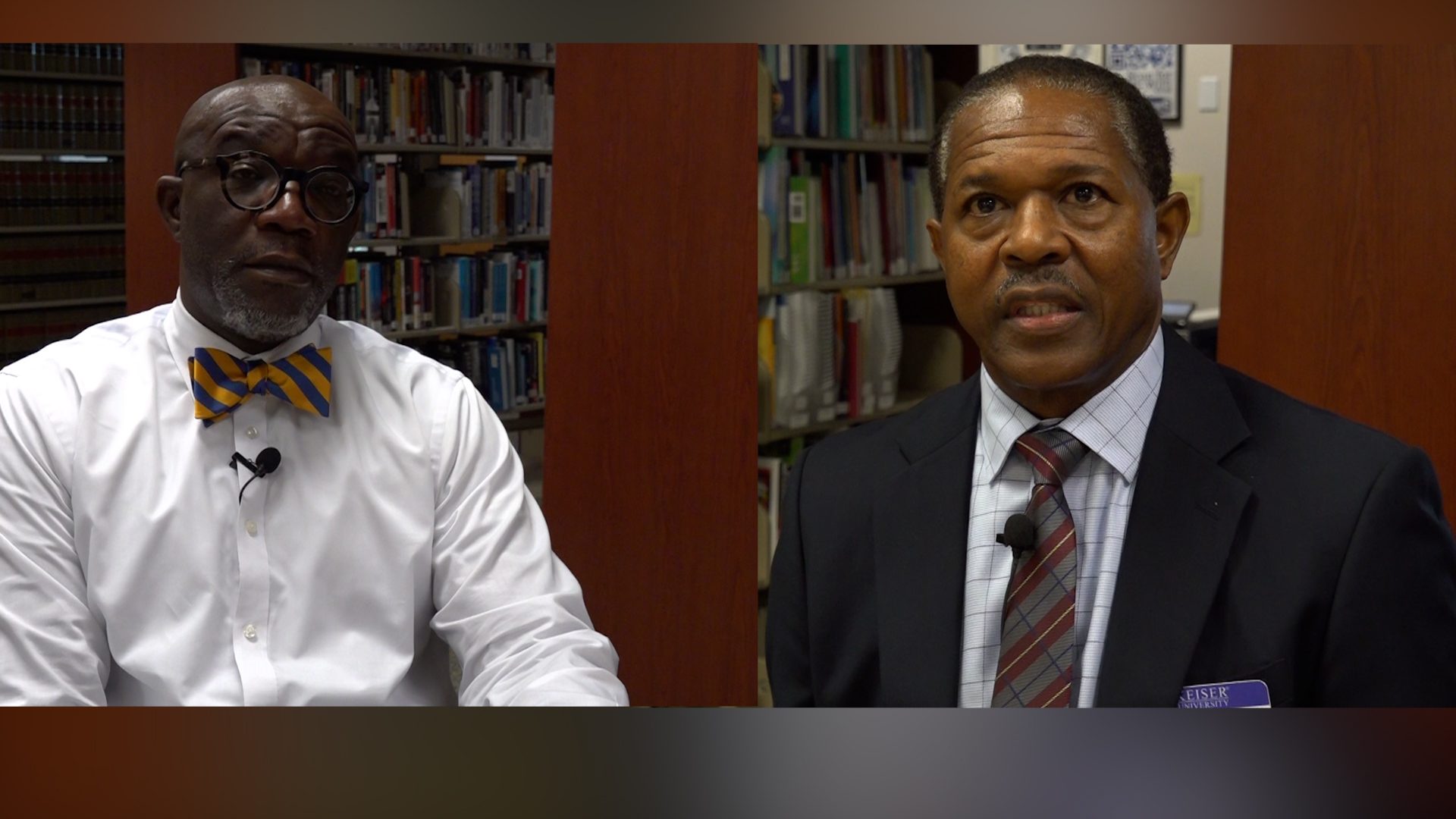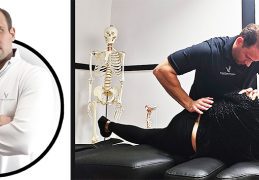Black History Month is celebrated each February, officially designated by every United States President since 1976.
It’s a tradition Keiser University Tampa professors Dr. Travis Smith and Eric Tinsley hope to continue for future generations.
“It’s good to continue to tell those stories so that the people or youth behind understand that there is an African American history that goes beyond what we learned in textbooks, which is normally about slavery,” Smith said. “We did a lot more in American culture, we gave a lot to help build this nation. I think it’s good that we take the month of February to celebrate that.”
Dr. Travis Smith is a Criminal Justice professor at Keiser University Tampa, teaching classes from Intro to Criminal Justice, to criminology and investigative courses. His teaching career followed several years working as a sheriff’s deputy in Rockford, Illinois.
As he brings his law enforcement experience into the classroom, Smith also hopes to inspire students during Black History Month with his personal experience learning about his heritage. In 1988 while in college, Smith went on a journey to learn more about who he is, discovering he is Cameroonian. The professor says he also dove into African American history, from the Harlem Renaissance to the Topeka Riots.
“Even though we’ve been through a lot here in the nation, we are a part of the fiber of this nation and we are a positive part of the history of this country,” Smith said. “I come to learn that we have a beautiful history here in the United States, ranging from inventors to musicians, to us actually inventing certain genres of music, like jazz. That is something that African Americans created here in this country.”
Smith says he hopes Black History Month will be an opportunity for younger generations to take the time to learn and appreciate African American history.
“What I learned at twenty years old, that there was some positivity behind who I am and the people who came before me. It brought about a sense of price, and I was excited about my color,” Smith said. It’s good to understand what your ancestors and forefathers here in this nation went through.”
The African American story is one Legal Studies professor Eric Tinsley also hopes is told throughout the month of February.
“Black history is like a secret, because most American citizens aren’t really very familiar with African American history. We’ve been here since the beginning. Black history is American history,” Tinsley said. “Hopefully during this month, people who haven’t been exposed to the contributions that African Americans have made to our country, hopefully they come across something that they didn’t know before.”
Tinsley says working in the legal field has been a goal since he was a child. After going to law school and working as an attorney, Tinsley found himself in the classroom inspiring the next generation of legal professionals by what he describes as divine intervention.
“In 2011, I was in a coma for 18 days. The doctors told my mom I wasn’t going to make it. When I came out, about a year after I came out of the hospital, I met a program director of one the Keiser University campuses. She recommended that I look into teaching,” Tinsley said. “It’s something that I’ve very enthusiastic about, I really enjoy it. I was able to share my life experiences with the students, and also bring a perspective to them they wouldn’t otherwise get.”
Learning about others’ experiences and background, Tinsley says, can help create deeper connections and appreciation for one another.
He hopes diving into Black History Month can do the same.
“I think it fosters respecting each other,” Tinsley said. “When you get to know someone a little better you tend to have a little bit more appreciation for where they’ve come, what they’ve gone through, what they’re going through, and where they’re going.”
Keiser University is a private, independent, non-profit university serving nearly 20,000 students at 21 Florida campuses, online, and two international sites. Co-founded in 1977 by Chancellor Arthur Keiser, Ph.D., and Evelyn Keiser, Keiser University currently offers more than 100 degrees from associates to the doctoral level. Keiser University is a designated Hispanic-Serving Institution, a member of the Hispanic Association of Colleges and Universities, and was ranked No. 1 in the U.S.in providing Social Mobility by U.S News and World Report in 2023.







 The instructors at Keiser University impacted my life. They believed in my ability to become a great graphic designer, regardless of how I felt about my skills. KU helped to prepare me for the real world and got me to where I am today.
The instructors at Keiser University impacted my life. They believed in my ability to become a great graphic designer, regardless of how I felt about my skills. KU helped to prepare me for the real world and got me to where I am today.
